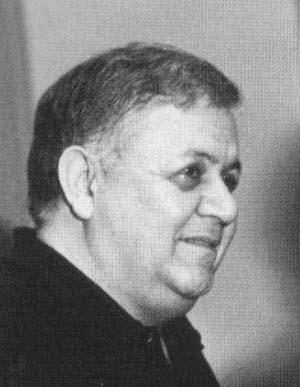
Manos Hadjidakis

Manos Hadjidakis was born in Xanthi, Greece, on October 23, 1925. At the age of four, he started playing the piano. During 1940-43 he studied theory and harmony under Menelaos Palladios, an important composer of the Greek national school, and attended the School of Philopsophy of the Athens University. Due to the War, all his formal studies remained incomplete. Being essentially a self taught musician, he set out realise his visions about music and Song, while being nurtured in the company of artists and intellectuals of stature such as Seferis, Elytis, Tsarouhis, Gatsos, Sikelianos.
From 1945 on, starting his collaboration with the Greek National Theatre and the Art Theatre of Athens, he mainly composed music for ancient Greek drama, as well as incidental music for the contemporary repertory: Medea (1956)) Women in Ecclesia (1956), Birds (1959), Othello (1957), A Streetcar Named Desire (1948), Blood Wedding (1948), Eurydice (1960) etc.
His famous lecture on the "rebetico" -still then, an underground type of song, expressing urban low-class sentiments- roused a storm of reaction from the conservative Greek middle-class. And yet, it radically changed the form of Greek song, starting it on a new course. In 1949, together with Rallou Manou and the painter Spiro Vassiliou, he founded the Greek Dance Theatre Company with which he presented in public his four ballets: Marsyas (1949), Six Popular Paintings (1950), The Accursed Serpent (1950) and Solitude (1957). In another series of lectures, in 1953, on the subject of contemporary and classic composers, he introduced the unknown yet Copland, Prokofiev, Shostakovich, Menotti, Bernstein and others, to the Greek audience, which had been isolated from the rest of the world, following the Second World War and a difficult post-war situation.
Beside his work for the theatre, from 1946 on, Manos Hadjidakis composed music for eighty Greek and foreign films: Stella (1955) The Rapist (1956), America-America (1963), Blue (1967), Honey-moon (1973), as well as music for two documentary films by J. Cousteau. In 1960 he was awarded an Oscar for his music in Never on Sunday by Jules Dassin. Two years Iater, he staged Street of Dreams in Athens, a milestone in the history of Greek musical theatre, directed by A. Solomos with stage sets by M. Argyrakis.
Manos Hadjidakis had also had a long and fruitful collaboration with the 20th Century Ballets, either conducting works of other composers (Traviata, 1973), or conducting his own works in the choreographies by Maurice Bejart (Birds 1964, Dionysos 1988, The Ballads of Athena Street 1993).
During the period 1966-72 he lived in New York, where he wrote some of his most important works, i.e. Rhythmology (for piano), Magnus Eroticus (cycle of songs based on poems by ancient and modern writers), Reflections (songs influenced by the atmosphere of the New York music scene). In the United States he started out writing The Era of Melissanthe, a musical chronicle of his life.
Manos Hadjidakis, a versatile, many-sided personality, used his talents in many more artistic activities: he founded and directed the Athens Experimental Orchestra (1964-1971, the cafe-theatre called "Polytropon" (1972), the Music Festivals in Anogia, Crete (1978), the Musical August in Heraclion Crete (1979), the Musical Contests in Corfu (1981), and also, the cultural magazine "Tetarto" (1982), the record company "Sirius" (1985), the symphonic ensemble "Orchestra of Colours" (1989), and he directed the Third Programme of Greek National Radio (1975-81). Since the very start of his career and at the same time with his other engagements, Manos Hadjidakis had been always active in recording, enriching Greek discography with dozens of records acclaimed as classics in Greece. Most of his song cycles are set on Nikos Gatsos (1905-1993) verses (one of the most important and exquisite exponents of Greek Surrealism) .
Manos Hadjidakis published four books of poems and commentaries (Mythology I and II, The Mirror and the Knife, Third Programme Comments). He died on the afternoon of June 15, 1994.
A small mp3 file of his work; orchestral
This biography was written by P. K.